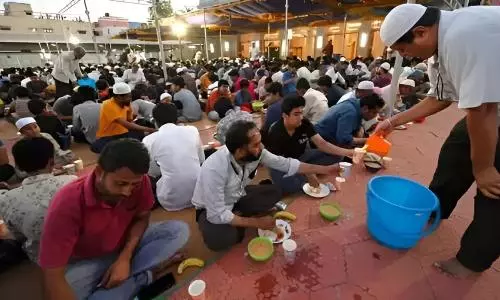
UP High Court rules distribution of the Bible is not an offence under UP Anti-Conversion Law
text_fieldsLucknow: The Lucknow bench of the Allahabad High Court has declared that the distribution of the Holy Bible and imparting good teachings cannot be considered an "allurement for religious conversion" under the Uttar Pradesh Prohibition of Unlawful Conversion of Religion Act.
The court's decision has far-reaching implications for cases related to alleged religious conversions in the state.
A bench presided over by Justice Shamim Ahmad issued this order while allowing an appeal against the rejection of bail pleas for Jose Papachen and Sheeja, who had been sent to jail following an FIR registered on the basis of a complaint filed by a BJP functionary in Ambedkar Nagar district on January 24.
The BJP leader had alleged that the two accused were luring people from the Scheduled Caste and Scheduled Tribe communities to convert to Christianity.
Justice Ahmad, in his observation, stated, "Providing teaching, distributing the Holy Bible, encouraging children to get an education, organizing assembly of villagers, and performing bhandara (community meals), instructing the villagers not to enter into an altercation and not to take liquor,does not amount to allurement under the 2021 Act."
The court's decision has also shed light on the procedural aspects of the Act. The bench emphasized that the Act stipulates that only an aggrieved person or their family can lodge FIRs in such cases. This means that strangers or third parties cannot initiate legal proceedings under the Act. This ruling clarifies a significant aspect of the Act and aims to prevent its misuse.
Representatives for the appellants argued that they were innocent and had been falsely implicated due to political rivalry. This case highlights the need for a careful examination of allegations under the Act and the importance of ensuring that it is not misused to target individuals based on religious affiliations.
The ruling is expected to set a precedent for similar cases and provide clarity on the scope and interpretation of the Uttar Pradesh Prohibition of Unlawful Conversion of Religion Act. It underscores the importance of distinguishing real cases of coercion and fraudulent conversions from genuine activities aimed at promoting education and community welfare.























